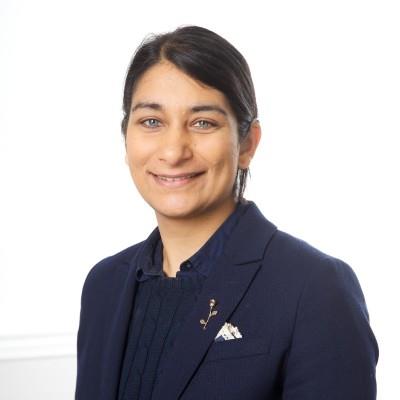Reema Patel says that the first day of the RSA Citizens’ Economic Council highlighted the need to rebuild trust if we are genuinely committed to creating an economy in which ordinary citizens can participate.
Rebuilding trust in a post-crash, post-truth society
The first cohort (of two) of the RSA’s Citizens’ Economic Council met in London over the past weekend. Trust in economics was a key issue raised - all of the participants said they distrusted some or all of those who make decisions about the economy: civil servants, politicians, the Bank of England and economists. When asked what words they would use to describe the economy, by far the most common responses were “money” and “complex”. The Financial Times this morning, in its coverage of the workshop on page 2, also highlighted concerns that the group that the ‘complex language of dismal science excludes ordinary people'.
2016 exposed a widening gap between people and politicians
Some of the emerging results from our Economic Inclusion Roadshow and responses from participants across Port Talbot, Jaywick, Birmingham and Oldham confirm these conversations that over the weekend. As part of the Inclusion Roadshow, we have also spoken with young people, LGBT people, those of different ethnic minority groups, and those who are disabled. Our work across the UK has drawn out the level of disaffection felt by citizens in experts, the media and political elites, and the extent to which that was illustrated by the perception of deep inequalities across our society. We look forward to publishing our findings on this Roadshow in March of this year.
The way in which the EU referendum was conducted also raised questions about democratic process – and interest in more deliberative approaches to democracy. Many people widely criticised the process for its poor quality of debate, highlighting some of the inadequacies of referenda (at least, in isolation). After the U.K’s vote to leave the European Union, the RSA convened a public event asking whether citizens could be economists – with a view to exploring the proper role and place for expertise in discourse about economic policy. There were arguments both in support of and against Brexit –but irrespective of which side of the debate you were on but maps from the RSA’s Inclusive Growth Commission interim report highlight how Brexit was in part driven by the disconnect between people and places; and the wider economy and political institutions.
The election of Donald Trump in the United States marked, and continues to mark a high point for populism – Trump was elected off the back of an explicitly racist and misogynistic campaign that sought to marginalise minority groups, as well as on a manifesto that was clearly undeliverable. Events in the U.S.A continue to serve as a reminder that, despite current prevailing high levels of disaffection and distrust in expertise and evidence – there is genuine value for it when given its proper place in a functioning democracy: we need our experts on tap – responsive to citizens and politicians, not on top, left alone to their own devices.
A post-crash economy has deepened distrust
Let us look a bit further back than 2016. The story of disillusionment and of a broken democratic economy begins long before 2016 – in 2008, the Queen famously asked economists why nobody saw the financial crash coming, perhaps summarising the reaction of the general public at the time. It is safe to say that, having experienced once of the worst global financial crises in our lifetimes, the public trust both economists and politicians less; and that these memories are unlikely to fade.
We still live in a post-crash economy where coming to terms with 2008 and the ripple effects it has had is critical to moving forward on democracy and our economy. Work such as that by Prof. Mariana Mazzucato on Rethinking Capitalism illustrates the extent to which our society is still feeling the repercussions of the crisis, struggling to recover from stagnating wages and low levels of growth. Looking back, it is clear that despite the profound impacts of this crisis on the world, very little has changed in the way institutions (from government, to companies, to the financial services industry) operate, and in their relationships with the public.
But there have been growing calls, within economic institutions as well as outside of them, for a wider conversation about an economy that works for everyone, and who should play a part in shaping that; politicians, policymakers and economists need to listen if they wish to avoid the perils of populism. One only needs to take a look at comments from the Bank of England's Chief Economist, Andy Haldane that 2008 was the economics profession’s 'Michael Fish' moment, to see that that the tide may be turning.
One positive outcome has been the creation of a new generation of critical post-2008 young economists; manifested in the Rethinking Economics movement which is a student-led international movement campaigning for more pluralist economics curricula across the world. Our own work, through the Citizens’ Economic Council, also aims to create a new participatory model that can rebuild trust in economics through informed, critical and engaged dialogue with a broader cross-section of society than that which economists are currently drawn from.
Experts need to eat humble pie to be taken seriously
Much has been made of the ‘post-truth’ society we live in. It is easy to ask citizens why they don’t trust experts anymore – but perhaps the conversations we have had on the road and with our Council shows how we need to frame the question in a different way. After all, the question presumes that the problem lies with the citizens and their unwillingness to accept the ‘facts’ as they are.
But we also need more humility from our experts – the so-called purveyors of ‘truth’, as well as competence. Saying ‘I don’t know’ needs to be acceptable again; in economics as in every other walk of life, there are assumptions that have been made, uncertainties about the future, judgements about choices and values that are not the preserve of the experts - and a host of questions that we all need to play a part in answering. That could be through deliberative processes like the Citizens’ Economic Council, or through activities like the Economic Inclusion Roadshow. The benefits of humility mean that experts can admit that even they need a little help sometimes.
Trust in both experts and politicians has been eroded by the 2008 financial crisis, a more general loss of deference by citizens in the 21st century, and by the rise of the ‘econocracy’: the sense that there are decisions which matter to people (on economics, but not just economics) which people feel excluded from through the use of jargon, or other barriers that prevent their active involvement in the conversation.
The question for us is – how might we be able to rebuild that trust, and by doing so, rebuild the legitimacy of our representative democracy?
It is our hope that the RSA Citizens’ Economic Council, and other deliberative models like it can play a small part in addressing the challenges exposed by the events of 2016 – bringing people closer to politics and economics so that we can realise an economy for everyone.
Find out more about the RSA Citizens' Economic Council
Related articles
-
Why Theresa May should reach for her inner Pankhurst: time for a National Citizens’ Jury on Brexit
Ed Cox
Ed Cox argues why we need a National Citizen's Jury on Brexit.
-
Two countries - polarised until we fix our democracy
Anthony Painter
Anthony Painter explores what the local elections say about the state of British politics and what that means for our ability to confront common challenges.
-
Democratic deliberation should be an integral part of policy making
Matthew Taylor
Matthew Taylor discusses why democratic deliberation is his chosen topic for his annual lecture.




Join the discussion
Comments
Please login to post a comment or reply
Don't have an account? Click here to register.
Really interisting
An excellent piece. We are certainly in a place that is largely unknown in recent political history in that the populace have developed a dismissive attitude, bordering on contempt, for those 'experts' who want to tell them how to live their lives. From the financial crash to Brexit and Trump people have re-evaluated what is important in their lives and have found an outlet for their anger/distrust/feeling of abandonment. We are indeed in danger of losing that vital sense of engagement with our fellow citizens through the corrosive effect of this lack of trust of all and any 'third party' groups/individuals/organisations that form part of our society.